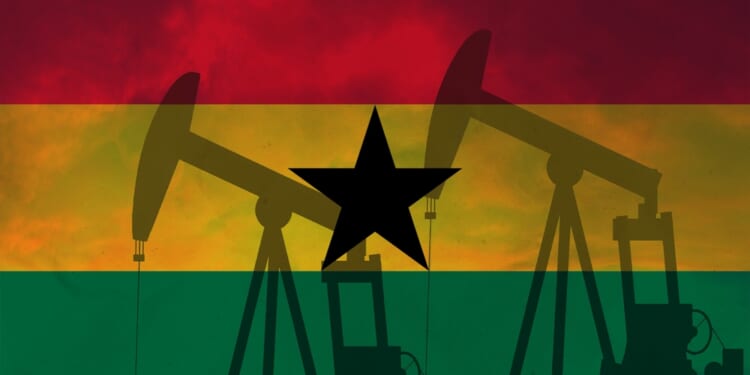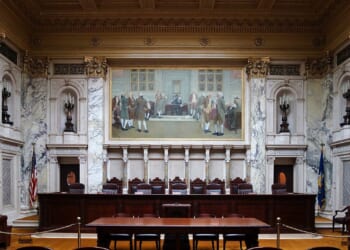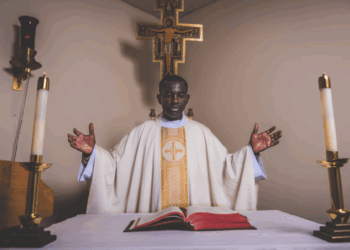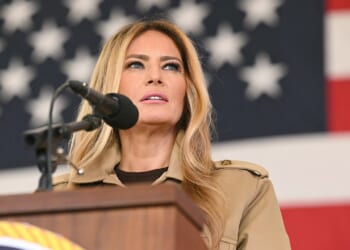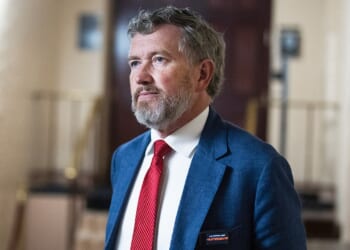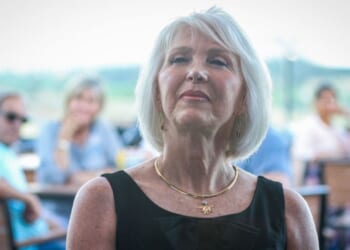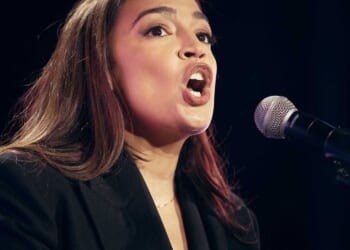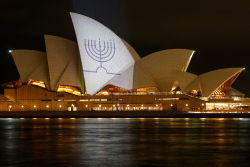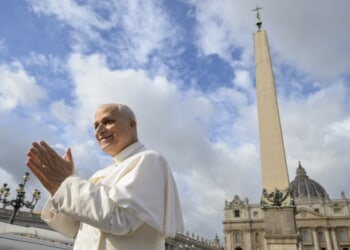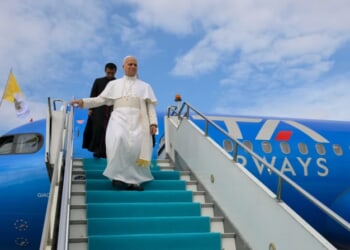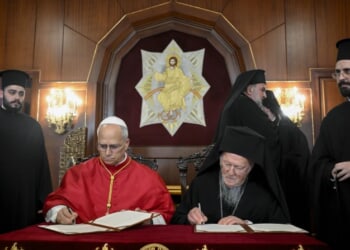Ghana’s energy debt and political realignment toward Russia and China are reshaping its democracy, straining US ties, and jeopardizing its role as West Africa’s energy success story.
Ghana’s new government is tilting away from the West and toward Russia and China at an alarming rate. From its public statements to persecution of domestic political rivals, Ghana’s left-wing administration is taking steps that at first glance resemble the politics of the Moscow-aligned states rather than West Africa’s most consolidated democracy.
Ghana’s political stability has long attracted Western companies to develop the country’s oil fields. First discovered in 2007, oil fields have been a game-changer for Ghana. Current President John Mahama, who was vice president in 2010 when the country became an oil and gas producer, and who later served as president between 2012 and 2017, made key decisions in the energy sector that shaped the path of Ghana’s oil development and the development of new power generation capabilities. The United States has also supported the development of alternative energy in Ghana, with the first West African hydro-solar plant developed in Ghana with US technical support.
Energy Debts Strain US-Ghana Ties
Mahama returned to power in Ghana’s last election and has moved the country to the left.
Most notably, Ghana has stopped paying US taxpayer-funded power producers—a move that risks more than a diplomatic rupture. Some $251 million is owed to American companies, including Kosmos Energy, Chubb Insurance, and American Tower Corporation (ATC). ATC is notably a constituent of the New York Stock Exchange’s S&P 500. Similar debts to European companies are also not being paid.
The issue spilled over in public earlier this year when Senator Jim Risch (R-ID), the Senate Foreign Relations Chair, posted on social media in response to the visit of Ghana’s Foreign Minister to Washington, DC.
“Ghana’s foreign minister should focus on honoring his government’s commitments to repay US companies and the American taxpayers,” Risch wrote. “We cannot keep subsidizing Ghana while it continues paying far larger debts to China.”
The Ghanaian reaction was to call US debts “measly” compared to slavery reparations they claim are due—while underwriting the majority of over $2.6 billion in unpaid energy debts Ghana owes.
Prioritizing payment to China over the United States is a fiscal choice with far-reaching geopolitical ramifications. It’s in keeping with a handful of unfortunate diplomatic choices from President John Mahama. Mr. Mahama praised the BRICS organization led by Russia and China in an interview with a Russian state media agency last year as “the power that stands against the Western monopoly.” Mahama eulogized Russia, where he studied as a youth, in his memoir My First Coup d’Etat, published in English and Russian, launching the latter in-person in Moscow, just before his re-election campaign. Mahama should tread carefully, as Russia has a long history of over-promising and under-delivering in Africa.
Ghana’s Political Struggles
Mahama first ruled Ghana from 2012 to 2017 and returned to power this year. Almost immediately after taking office, President Mahama launched “Operation Recover All Loot” (ORAL)—an anti-corruption campaign, but in reality, it is a mechanism to leverage the state and judicial system against political opponents. Namely, the New Patriotic Party (NPP)—the traditional conservative party in Ghana. Like the Republican Party in the United States, the conservative party proudly brandishes an elephant logo, but perhaps more deservedly so since elephants are native to Ghana.
In line with the ORAL campaign, a special prosecutor has launched investigations into former NPP politicians, the most senior being the former finance minister Ken Ofori-Atta. Mr. Offori-Atta is a former banker with Morgan Stanley and Salomon Brothers, a Wall Street banker who steered Ghana’s post-COVID recovery. Mr. Ofori-Atta’s home was raided by the government, allegedly without a warrant—though it was publicly known Ofori-Atta was thousands of miles away in the United States receiving cancer treatment at the time, lending the episode a hint of political theatre.
The former finance minister was soon declared a “fugitive from justice” and issued with an Interpol Red Notice, with the special prosecutor claiming an extradition request had been lodged with the United States that had attracted the attention of American authorities. Roughly a year later, the issue is still in the “investigation phase.” The special prosecutor has not stated which alleged crimes are under investigation. This is political persecution—pure and simple.
Undermining the Judiciary
More recently, the Chief Justice was suspended after an investigation triggered by three petitions that the Mahama administration has yet to make public. President Mahama ultimately removed her from office—the first Chief Justice to be dismissed since Ghana’s return to democracy in 1992. He then added seven new Supreme Court justices of his own to the bench, consolidating judicial loyalty.
Concurrently, five cases involving former senior officials from Mahama’s own National Democratic Congress (NDC) party were abandoned. Furthermore, criminal charges were dropped against former NDC finance minister Kwabena Duffour in relation to the collapse of his privately-owned retail bank, Unibank.
The newly appointed NDC attorney general cited a lack of public interest in continuing the case. Ironically, it was Duffuor’s successor as finance minister, Mr. Ofori-Atta, who stepped in to rescue the bank and retrieve even a portion of the savings for depositors.
A Case Falling Apart
This political lawfare is now being exposed. Without results—particularly in the case against Mr. Ofori-Atta—this month, the under-pressure attorney general demanded in an exasperated press conference to see the case the special prosecutor claimed to be building.
“In the case of the Americans,” he said, “the practice is for you to have filed charges. Without a docket, we cannot make the request [for an extradition]. We are still waiting for the docket.”
This forced the special prosecutor to clarify the status of the “extradition request,” and admit nothing was submitted to the Americans—only an expression of intent to the Ghanaian president and attorney general that he might submit something at a later stage.
Questions are also now being asked about the Interpol Red Notice, and precisely the criteria under which it was acquired, as Red Notices require charges to have been brought before they can be issued.
Of the five general allegations referenced against Mr. Ofori-Atta, only one relates to conduct by the Ministry of Finance. The others relate to processing spending by the Ministry of Finance, though individuals within the ministry who had direct involvement or oversight over those decisions have not been charged.
With his long-standing US private sector connections and as founder of Ghana’s leading investment bank, Mr. Ofori-Atta’s ability to raise campaign funds has been important financially for the NPP.
Energy, Corruption, and the Cost of Alignment
Debts to US energy firms, a President with ties to Russia, lawfare against political opponents, an extradition request to nowhere, and questions surrounding Interpol notices define Ghana’s uneasy eastward pivot.
Ghana was once hailed as West Africa’s energy success story and now risks becoming a warning of how corruption and ideology can drain a country’s future faster than any oil well.
About the Author: Joseph Hammond
Joseph Hammond is a journalist and former Fulbright Public Policy fellow with the government of Malawi. He has reported from four continents on topics ranging from the Arab Spring to the M23 rebellion in the Eastern Congo, with bylines in Newsweek, The Washington Post, Forbes.com, and more. He has contributed to the National Interest since 2016. Hammond has been a recipient of fellowships organized by several think tanks, including the National Endowment for Democracy, the Atlantic Council of the United States, the Heinrich Boll Stiftung North America Foundation, and the Policy Center for the New South’s Atlantic Dialogue.
Image: Elif Bayraktar/shutterstock

